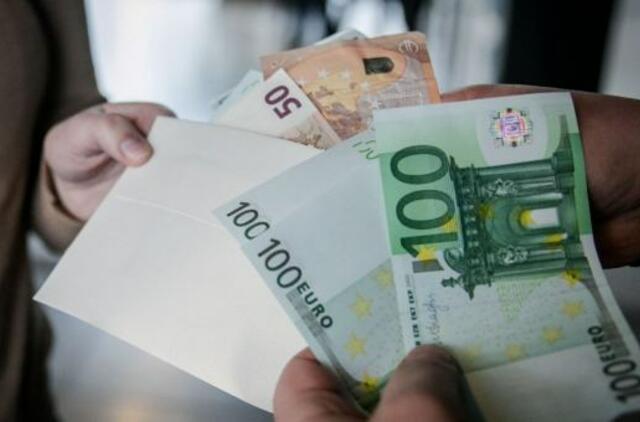
Review by Transparency International
Statistics released on June 15 by the Transparency International Lithuanian Chapter show that every fifth resident who visited health care institutions, or 19%, confessed to giving a bribe, and every fourth (25%) used personal connections at least once, reports BNS. Based on levels of bribery in the healthcare system, “Lithuania still remains one of the most corrupt countries in the European Union (EU)”, the latest “Transparency International” Global Corruption Barometer 2021 reveals.
Every fifth patient (22%) confessed to giving a bribe to a healthcare sector representative in Romania. This is the only state in the EU where the levels of bribery in the healthcare system are higher than in Lithuania. In Denmark, 1% claims to have given a bribe in healthcare institutions, with only 2% in Estonia, and 10% in both Latvia and Poland.
“It‘s disappointing that the extent of bribery in the healthcare sector does not allow Lithuania to finally get rid of the Soviet legacy. If we finally dealt with this issue, we would become more like our Northern neighbours that give almost no bribes. I see this as one of the key anti-corruption tasks for this government and, in particular, the ministry of health,” said Sergejus Muravjovas, CEO of Transparency International Lithuania, said in the statement.
Over the past 4 years, the overall level of bribery in the public sector in Lithuania decreased by 7% (from 24% in 2016 to 17% in 2020). Currently, the highest levels of bribery in the EU are in Romania (20%), Bulgaria (19%), Hungary and Lithuania (17%). The lowest levels of bribery are found in Denmark, Finland, and Sweden (1%). The EU average stands at 7%.
Every fourth resident (27%) claims to have used personal connections at least once in order to get the services they needed. The highest number of such incidences are in the Czech Republic (57%), the lowest in Estonia (12%). The EU average is at 33%.
In Lithuania 6 out of 10 residents think that the government is run by a few big interest groups looking out for themselves first. The highest number of those who have that opinion are in Slovenia (70%), the smallest – in Sweden (20%). The EU average is 53%. Only every fourth resident believes that the government in Lithuania has been transparent in its handling of the COVID-19 pandemic. The highest number of residents who say that about their leadership are in Sweden (72%), the lowest in Spain (20%), with an EU average of 44%.
The number of residents in Lithuania who favorably assess the government’s efforts in fighting corruption has tripled in four years (42% in 2020 compared to 13% in 2016). In addition, every third resident (32%) believes that the level of corruption has decreased in the country. Only in Slovakia (39%) and Greece (33%) are those numbers higher.
Six out of ten Lithuanians (58%) agree that they can make a difference in the fight against corruption. The EU average is 64%. Under half of the residents (45%) claim that ordinary people in Lithuania can report incidents of corruption without fear of retaliation. The EU average is 47%.
Thr Global Corruption Barometer is a sociological research survey organized by “Transparency International” to discover residents‘ experience of corruption and their opinion on corruption in their country’s institutions. Kantar Lithuania surveyed 1,000 residents in Lithuania from October 2020 to November 2020.
News from Lithuania Daily Bulletin



























